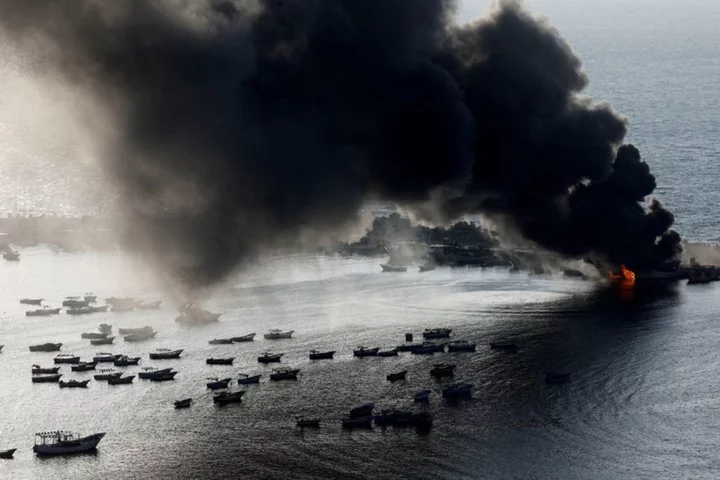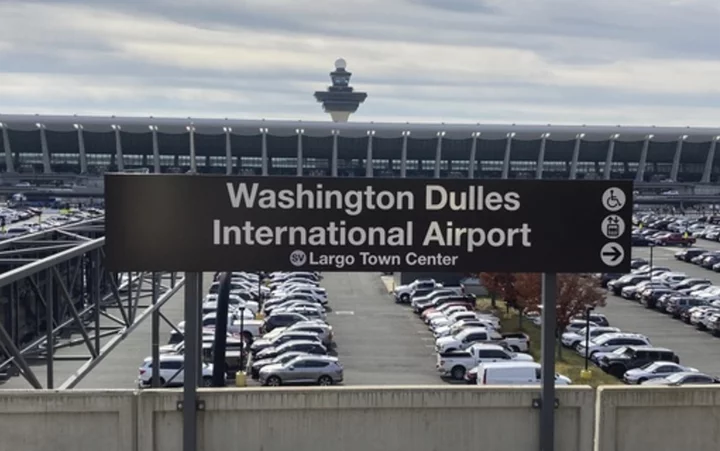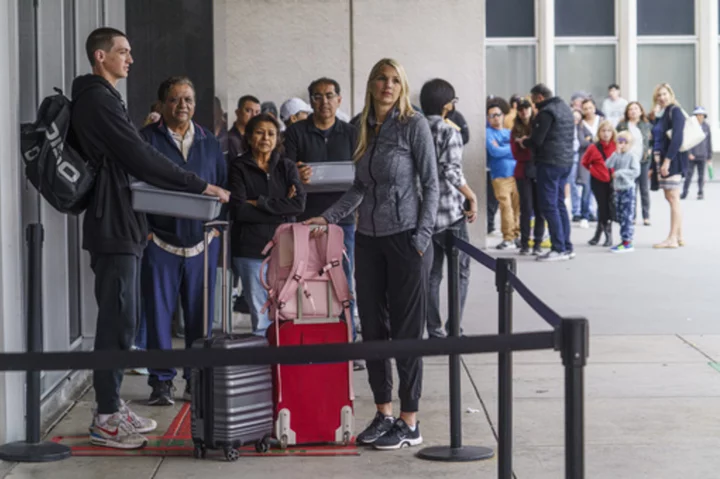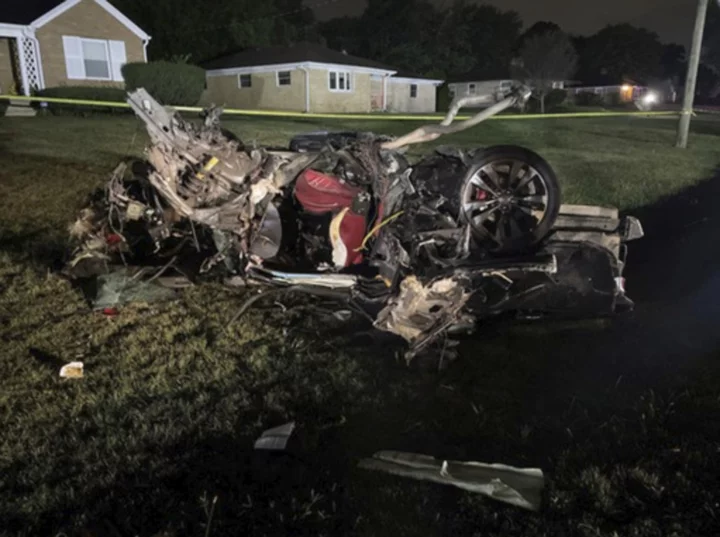The fighting between Israel and Hamas, which launched a surprise attack on Saturday, is the latest in seven decades of war and conflict between Israelis and Palestinians that has drawn in outside powers and destabilised the wider Middle East.
WHAT ARE THE ORIGINS OF THE CONFLICT?
The conflict pits Israeli demands for security in what it has long regarded as a hostile region against Palestinian aspirations for a state of their own.
Israel's founding father David Ben-Gurion proclaimed the modern State of Israel on May 14, 1948, establishing a safe-haven for Jews fleeing persecution and seeking a national home on land to which they cite deep ties over generations.
Palestinians lament Israel's creation as the Nakba, or catastrophe, that resulted in their dispossession and blocked their dreams of statehood.
In the war that followed, some 700,000 Palestinians, half the Arab population of what was British-ruled Palestine, fled or were driven from their homes, ending up in Jordan, Lebanon and Syria as well as in Gaza, the West Bank and East Jerusalem.
Israel, a close U.S. ally, contests the assertion it drove Palestinians from their homes and points out it was attacked by five Arab states the day after its creation. Armistice pacts halted the fighting in 1949 but there was no formal peace.
Palestinians who stayed put in the war today form the Arab Israeli community, making up about 20% of Israel's population.
WHAT MAJOR WARS HAVE BEEN FOUGHT SINCE THEN?
In 1967, Israel made a pre-emptive strike against Egypt and Syria, launching the Six-Day War. Israel has occupied the West Bank, Arab East Jerusalem, which it captured from Jordan, and Syria's Golan Heights ever since.
In 1973, Egypt and Syria attacked Israeli positions along the Suez Canal and Golan Heights, beginning the Yom Kippur War. Israel pushed both armies back within three weeks.
Israel invaded Lebanon in 1982 and thousands of Palestinian fighters under Yasser Arafat were evacuated by sea after a 10-week siege. In 2006, war erupted in Lebanon again when Hezbollah militants captured two Israeli soldiers and Israel retaliated.
In 2005 Israel quit Gaza, which it had captured from Egypt in 1967. But Gaza saw major flare-ups in 2006, 2008, 2012, 2014 and 2021 that involved Israeli air raids and Palestinian rocket fire, and sometimes also cross border incursions by either side.
As well as wars, there have been two Palestinian intifadas or uprisings between 1987-1993 and again in 2000-05. The second saw waves of Hamas suicide bombings against Israelis.
WHAT ATTEMPTS HAVE THERE BEEN TO MAKE PEACE?
In 1979, Egypt and Israel signed a peace treaty, ending 30 years of hostility. In 1993, Israeli Prime Minister Yitzhak Rabin and Arafat shook hands on the Oslo Accords on limited Palestinian autonomy. In 1994, Israel signed a peace treaty with Jordan.
The Camp David summit of 2000 saw President Bill Clinton, Israeli Prime Minister Ehud Barak and Arafat fail to reach a final peace deal.
In 2002, an Arab plan offered Israel normal ties with all Arab countries in return for a full withdrawal from the lands it took in the 1967 Middle East war, creation of a Palestinian state and a "just solution" for Palestinian refugees.
Peace efforts have been stalled since 2014, when talks failed between Israelis and Palestinians in Washington.
Palestinians later boycotted dealings with the administration of U.S. President Donald Trump since it reversed decades of U.S. policy by refusing to endorse the two-state solution - the peace formula that envisages a Palestinian state established in territory that Israel captured in 1967.
WHERE DO PEACE EFFORTS STAND NOW?
The administration of U.S. President Joe Biden has focused on trying to secure a "grand bargain" in the Middle East that includes normalisation of relations between Israel and Saudi Arabia, custodian of Islam's two holiest shrines.
The latest war is diplomatically awkward for Riyadh as well as for other Arab states, including some Gulf Arab states next to Saudi Arabia, that have signed peace deals with Israel.
WHAT ARE THE MAIN ISRAELI-PALESTINIAN ISSUES?
A two-state solution, Israeli settlements, the status of Jerusalem, and refugees are at the core of the dispute.
Two-state solution - an agreement that would create a state for the Palestinians in the West Bank and Gaza Strip alongside Israel. Hamas rejects the two-state solution and is sworn to Israel's destruction. Israel has said a Palestinian state must be demilitarised so as not to threaten Israel.
Settlements - Most countries deem Jewish settlements built on land Israel occupied in 1967 as illegal. Israel disputes this and cites historical and Biblical ties to the land. Their continued expansion is among the most contentious issues between Israel, the Palestinians and the international community.
Jerusalem - Palestinians want East Jerusalem, which includes sites sacred to Muslims, Jews and Christians, to be the capital of their state. Israel says Jerusalem should remain its "indivisible and eternal" capital. Israel's claim to the eastern part of Jerusalem is not recognised internationally. Trump recognised Jerusalem as Israel's capital – without specifying the extent of its jurisdiction in the disputed city - and moved the U.S. embassy there in 2018.
Refugees - Today about 5.6 million Palestinian refugees - mainly descendants of those who fled in 1948 - live in Jordan, Lebanon, Syria, the Israeli-occupied West Bank and Gaza. About half of registered refugees remain stateless, according to the Palestinian foreign ministry, many living in crowded camps.
Palestinians have long demanded that refugees should be allowed to return, along with millions of their descendants. Israel says any resettlement of Palestinian refugees must occur outside of its borders.
(Compiled by Reuters journalists; Editing by Edmund Blair)









